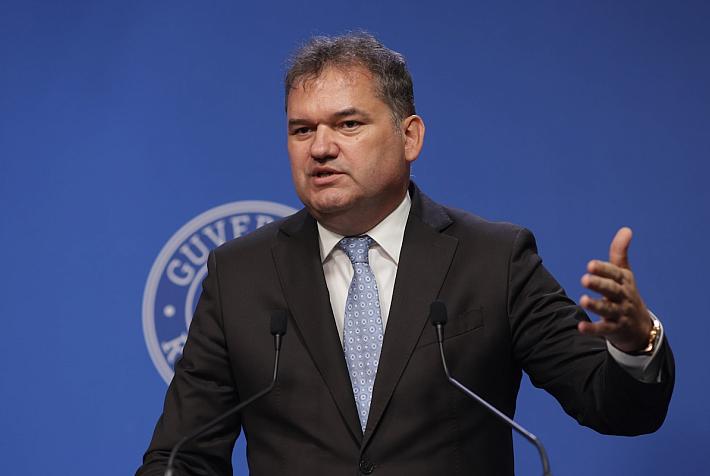JP Morgan argues fiscal policy poses inflationary risks in Romania

It is the fiscal policy that poses inflationary risks in Romania rather than the tight labor market (as argued by other economists), argued JP Morgan Head of EMEA EM Economics in London Nicolae Chidesciuc attending the annual conference of CFA Romania, concluding that the central banks in the region including the National Bank of Romania (BNR) will maintain restrictive policies.
Romania's central bank scheduled on May 13 the next board meeting, where part of the banks' chief economists expect the first rate cut in more than a year. Arguments for delaying such a step are, however, accumulating.
It will not be the "price-wage spiral" that will bring additional risks to inflation, but fiscal policy, Chidesciuc argued.
"The fiscal side will clearly generate inflation. Fiscal reform is mandatory and will fuel inflation and a higher budget deficit, which we have forecast at 6%-7% of GDP [this year]. However, in case of recession, the budget deficit would increase much more," said Nicolae Chidesciuc.
An analysis by JP Morgan and Fitch Ratings in the context of the CFA Romania conference and consulted by Economica.net concluded that under a recession scenario, both government debts and budget deficits in the region, including Romania, would increase, especially since inflationary pressures are far from being low, fueled especially by fiscal reforms.
"State debt has increased, and the forecasts indicate they will keep rising. [...] In addition, the public debt service will increase," said Paul Gamble, Senior Director, Head of Emerging Europe, Sovereign Group, Fitch Ratings, at the annual conference of CFA Romania. In the case of Romania, for example, it reached 1.9% of GDP.
iulian@romania-insider.com
(Photo source: Dreamstime.com)











